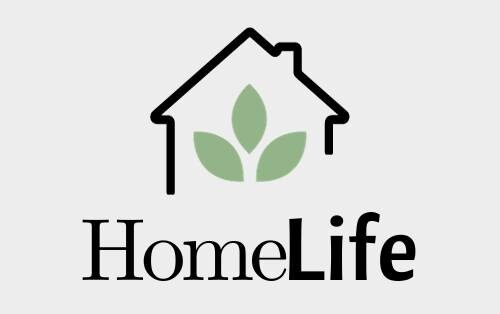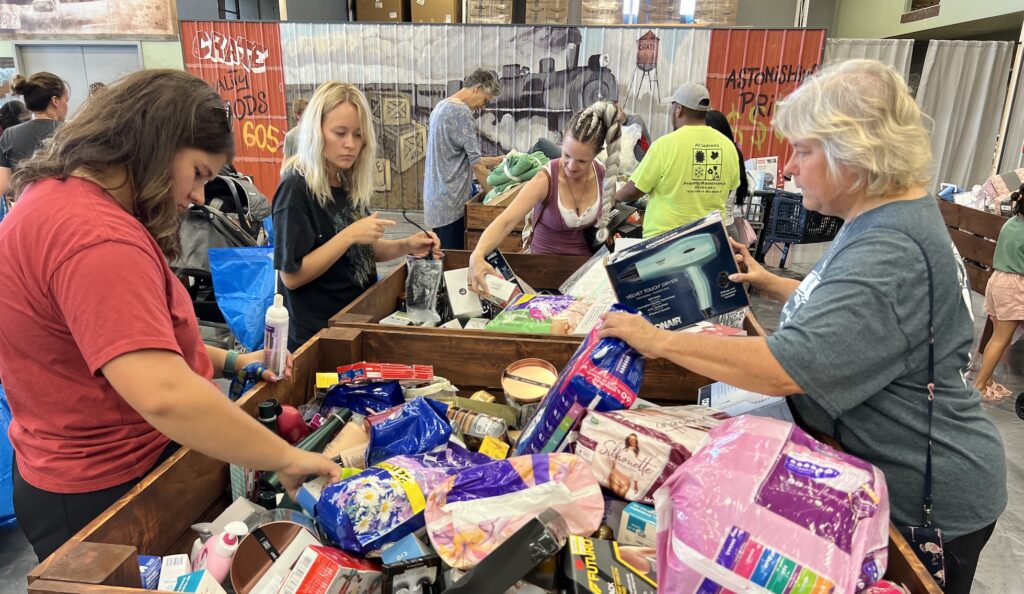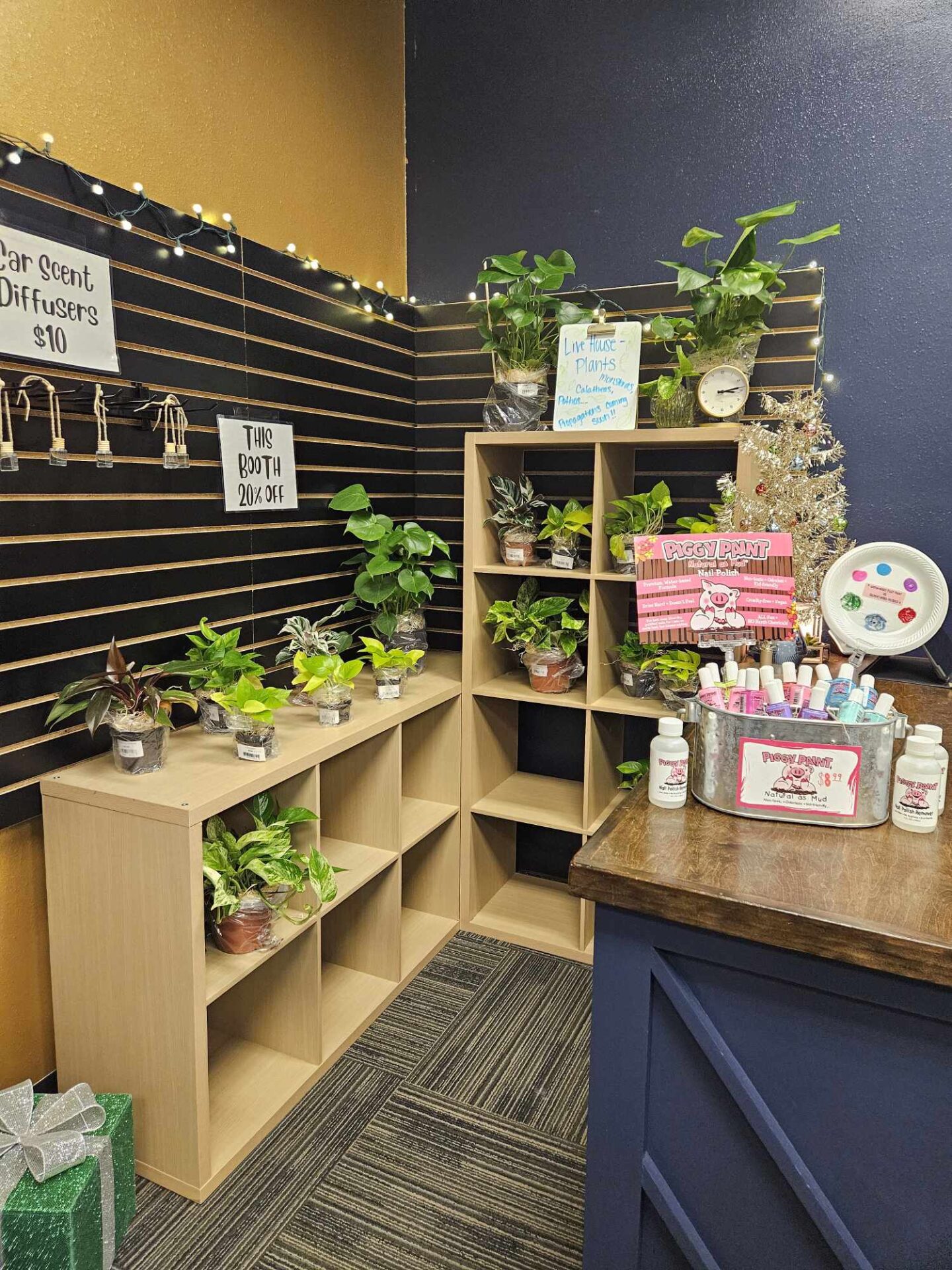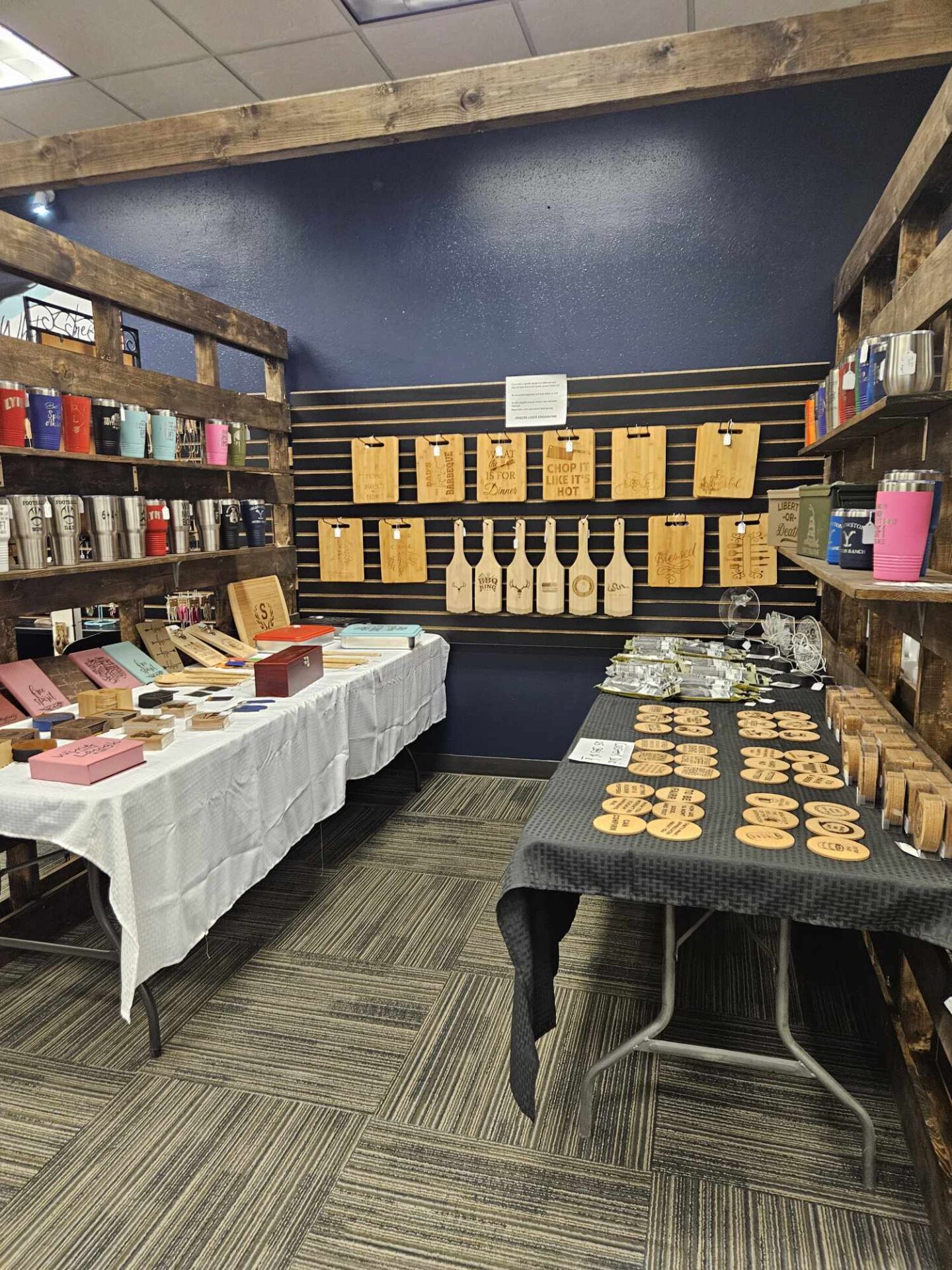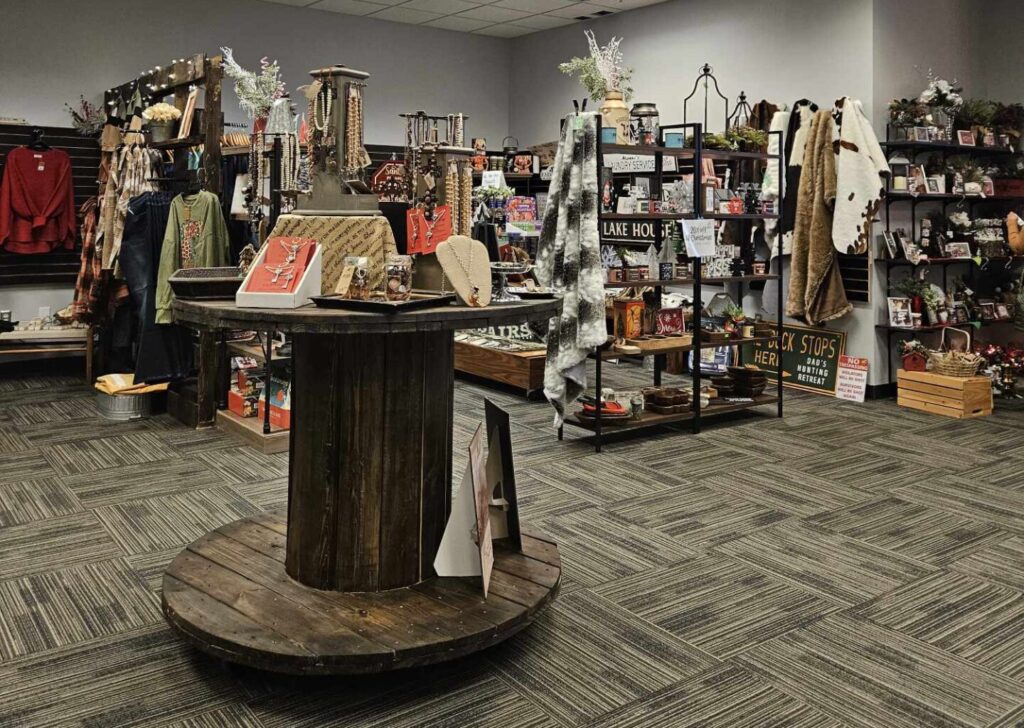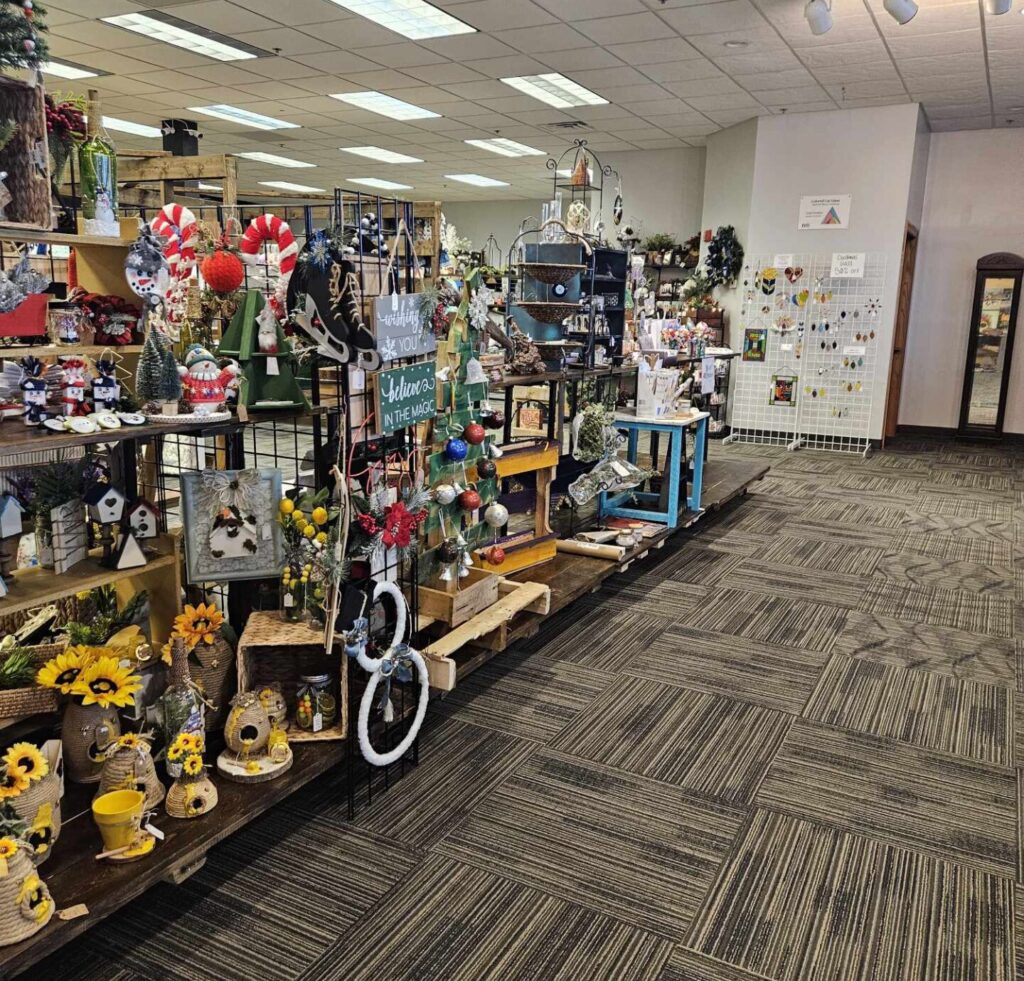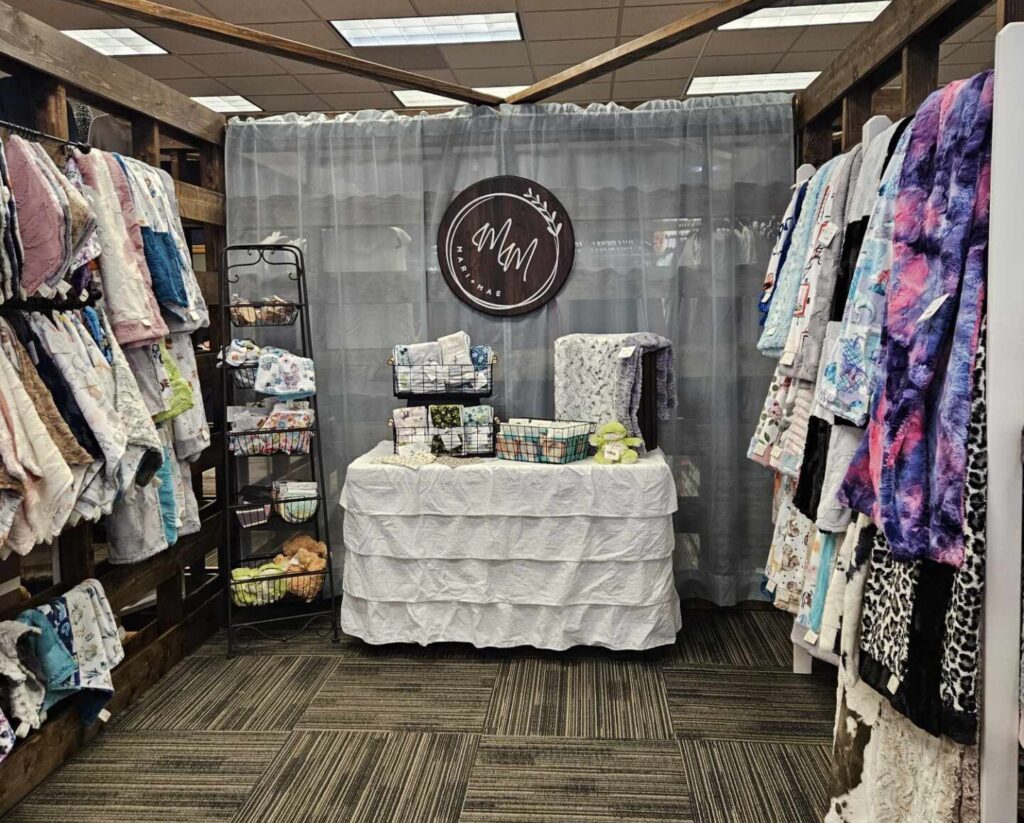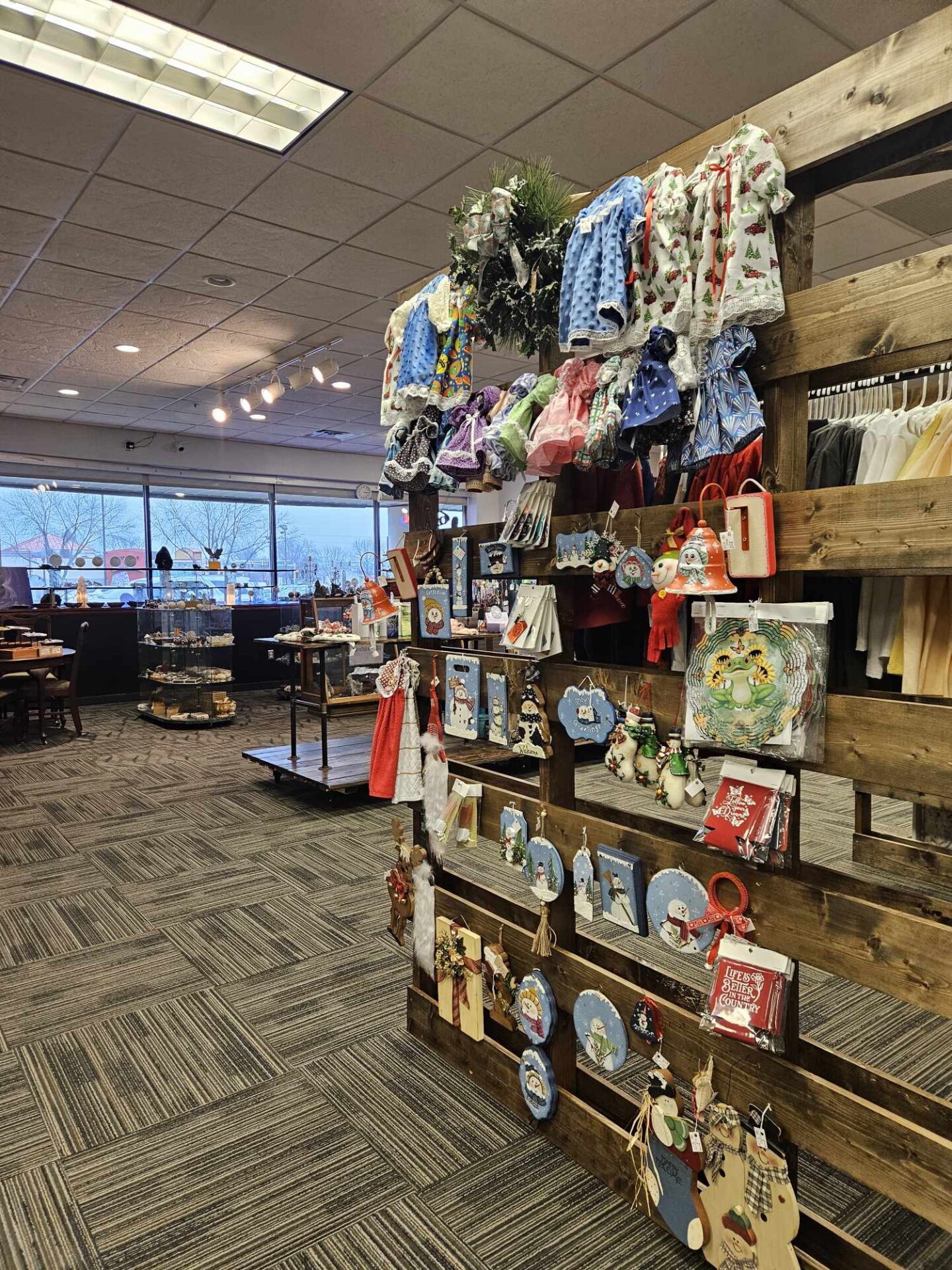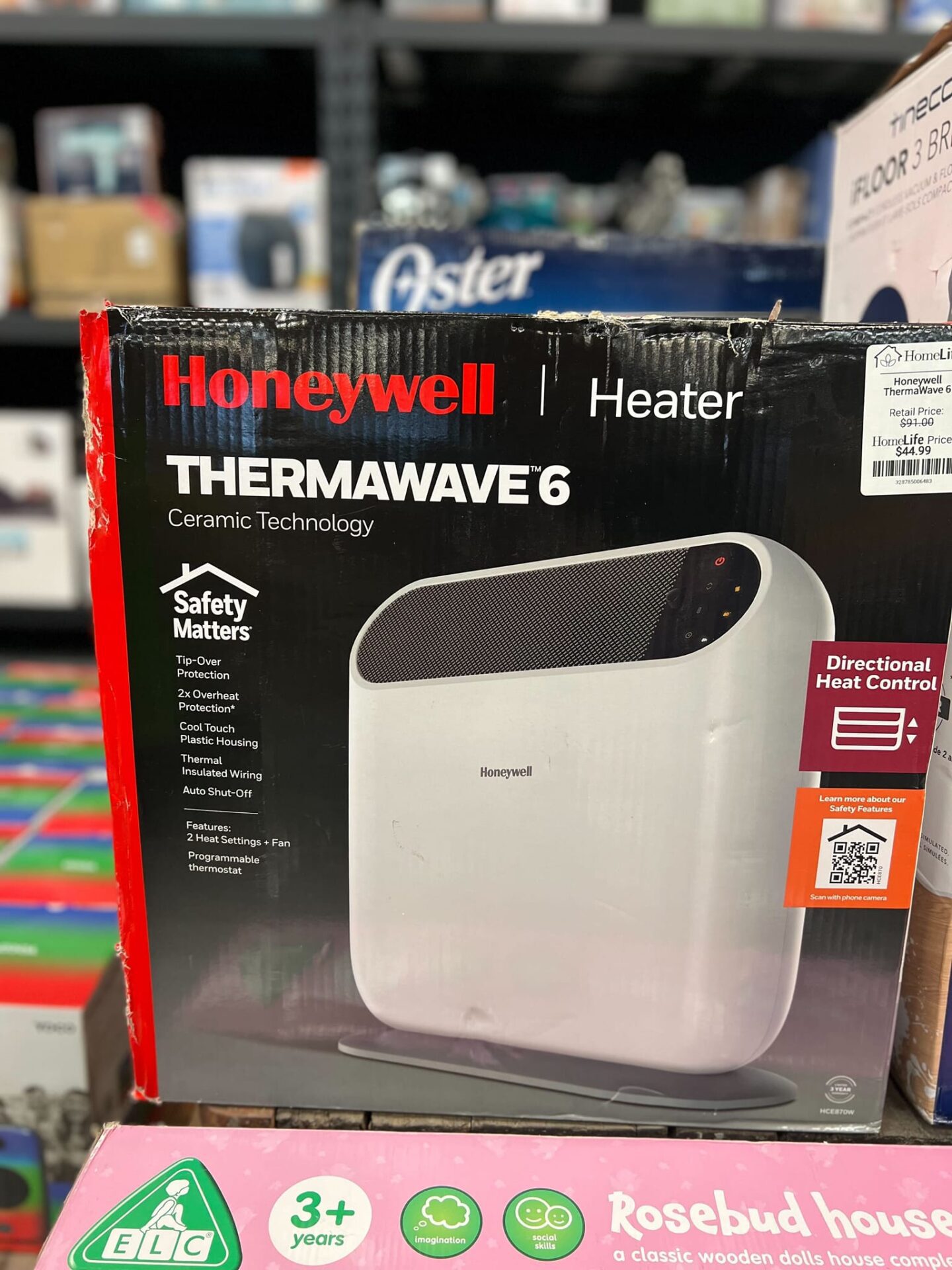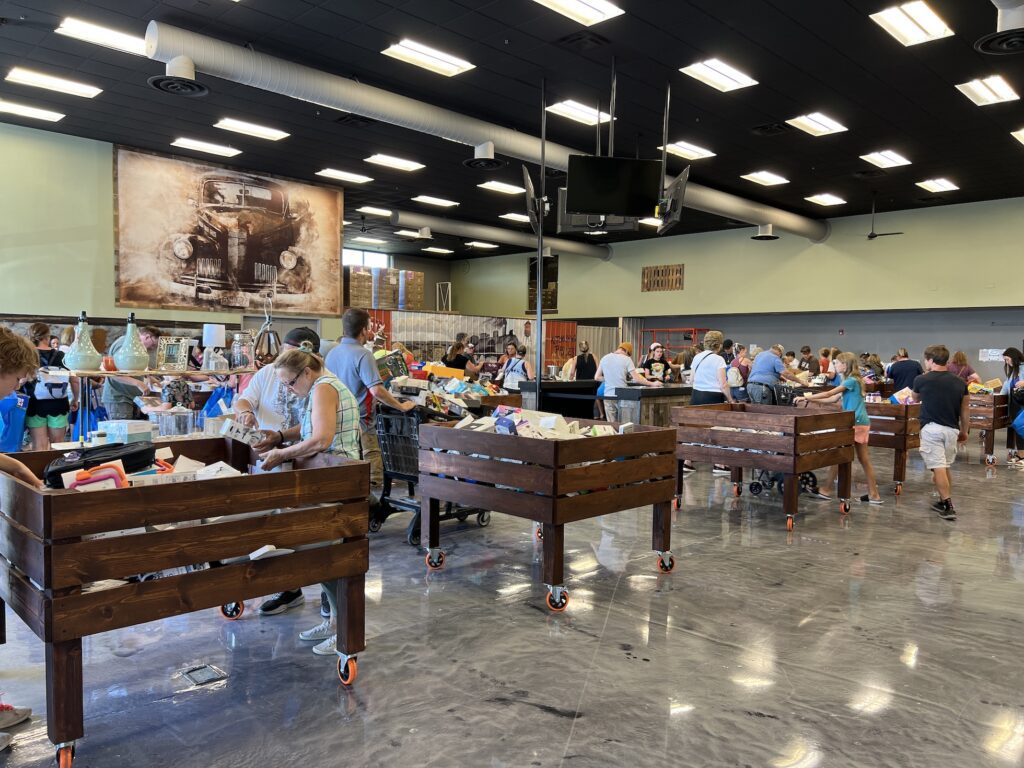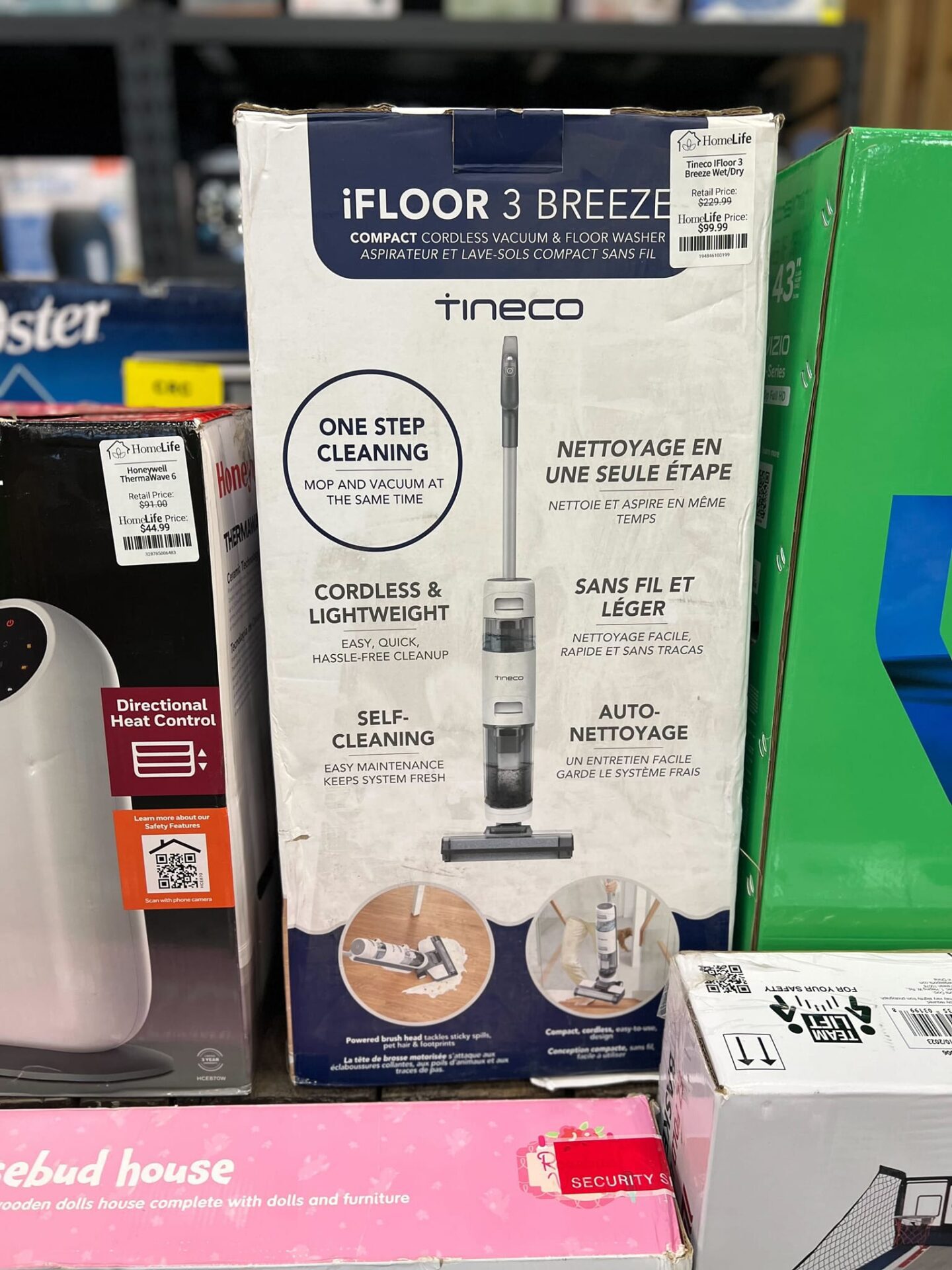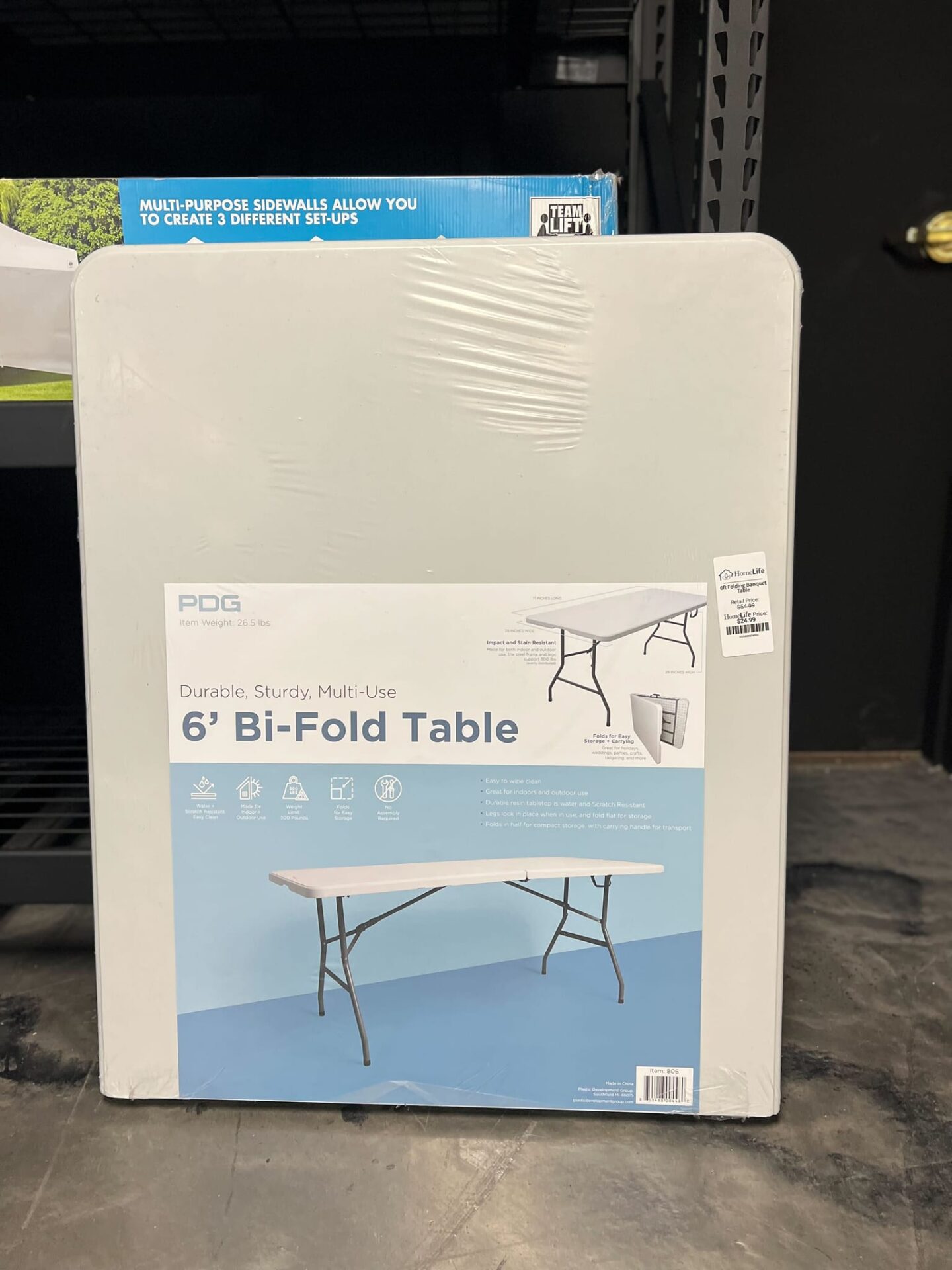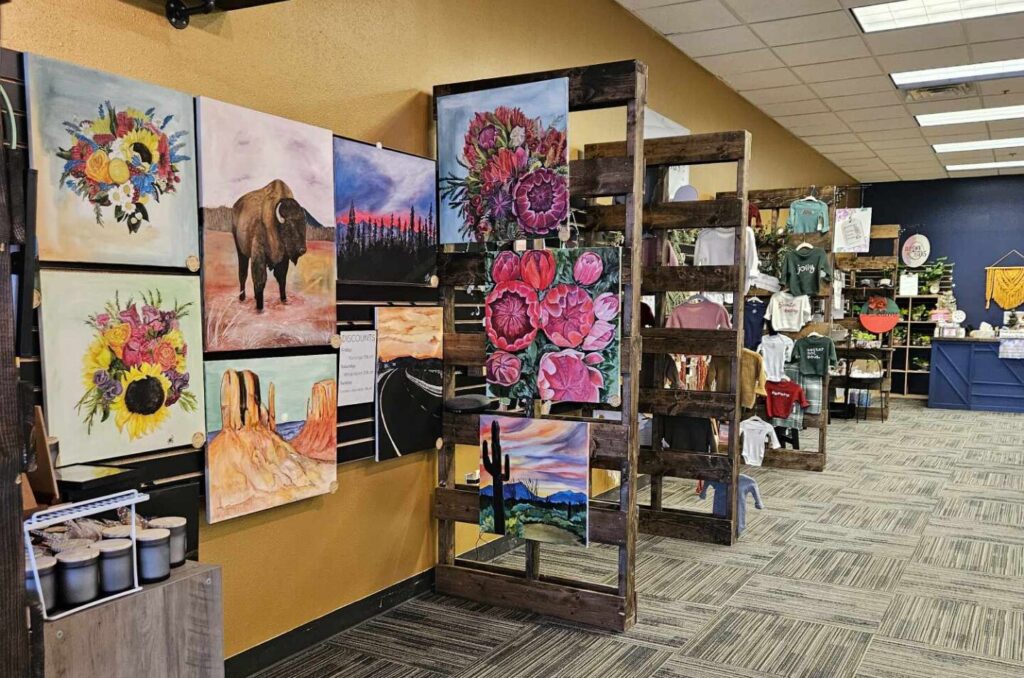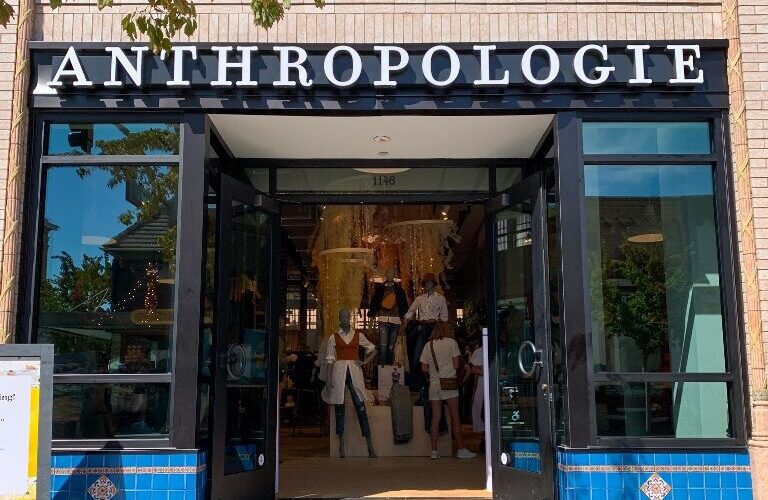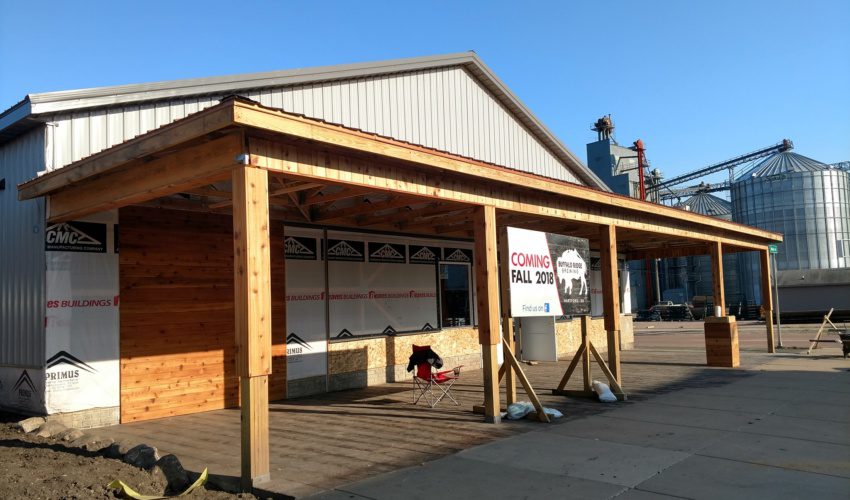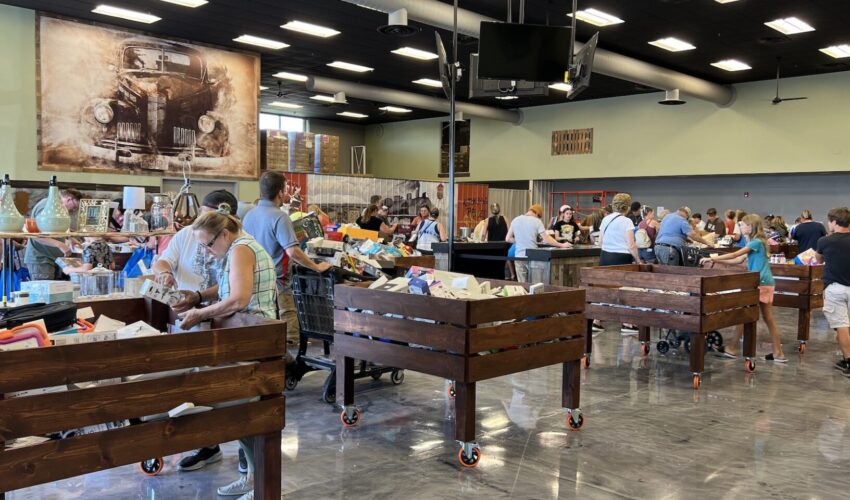Has the bin store wave crashed? As some close, others take new approach to deep discounting
Jan. 11, 2024
The most consistent aspect of the liquidation business? It’s not consistent.
That observation comes from Nathan Mitchem via his wife, Tareja. Along with Tareja’s uncle and aunt, Shane and Misty Oien, they own a chain of bin stores and recently changed their business model to adjust to changes in the discount-retail market.
That is why their bin store in Sioux Falls that once was known as Crate now is HomeLife, described as “a brand-new liquidation shopping experience.”
“We’re pivoting more to more traditionally priced goods,” Tareja Mitchem said. “Our model is changing. We want to provide better quality products.”
In recent months, a couple of bin stores in Sioux Falls have closed. DaaBin announced in late August it would be “temporarily” closed; its owner said he could not comment further because of litigation.
Bin stores were founded, in part, because customers return items — often. According to the National Retail Federation, $816 billion in merchandise was returned to stores in 2022. That merchandise gets a second chance when bin stores buy pallets of returned goods either from liquidation companies or directly from the retailers. Prices generally are highest the day after a truckload of pallets comes in, then gradually decrease.
Owner Hailey Franka recently changed her business model. She had operated as Bargain Bins 605 in Brandon; now, Boutique & Bid 605 — BB605 for short — offers most of its goods through an online auction model while offering space to individual vendors who sell their own crafts.
One reason she started a bin store was to help the environment, keeping overstock goods and returned items from ending up in a landfill, Franka said. As the model changed and the number of damaged items coming into her store increased, she began to uneasily feel she was contributing to the problem.
“From Amazon specifically, it’s mainly returns. You do have overstocks, things they made too much of,” Franka said. “I love Sam’s Club liquidations; they are the only liquidation company that you can actually get a credit back. They do check all of their returns before they get sent back for liquidation.”
While Bargain Bins 605 offered a 100 percent inventory of liquidated items in its building, BB605 will auction off 95 percent of its merchandise, Franka said. She started the bin store about two years ago when “liquidation was a great place to be,” she said.
“When we first opened, a lot of inventory had been sitting in shipping containers overseas,” she said. “The demand was also higher, and there were a lot more bin stores in our area and over the whole United States. About January of last year, we were told some of the contracts were going to start changing, and we weren’t sure what to expect.”
For example, she was told Target would no longer offer liquidators returned and surplus goods valued at more than $50. That meant goods that offered the “aha!” factor — the more expensive items that could be sold at a greater markdown — were in shorter supply. In addition, there was a summer slump that never really went away.
Franka decided to act.
“We decided to pivot before it was too late for us,” she said. “We decided to get out of bins, but we’ll still be liquidation.”
The 5 percent of BB605’s goods that don’t go up for auction will be priced-as-marked goods, Franka said.
BB605’s liquidations come from big-box retailers, and the items are checked thoroughly before they are put up for auction. The customers who submit the winning bid can pick up the goods at Franka’s store.
At one point, Franka considered moving to a smaller location because she needed only about 1,000 square feet to run the auctions and store. However, Brandon had lost two businesses, The Warehouse and The 1948 Trading Company, which had offered vendors an outlet. Franka decided to help fill that gap. Instead, she decided to open it up to vendors.
The space filled faster than even she expected.
“About 20 vendors opened for Black Friday,” Franka said. “We added another 15, big and small and all sizes of booths. After the first of the year, we’ll be adding more in the back half.”
Shane Oien had worked in the liquidation industry for more than 10 years when, in 2016, he became familiar with the bin store concept. He registered his business Crate with the state of South Dakota, always knowing he wanted it to encompass more than discounted goods. He put it on hold for several years, then contacted his niece and her husband, the Mitchems.
“At the time, we were working in corporate America,” Tareja Mitchem said. “He said the bin stores were more popular down South, but he asked if we would think about opening one in Rapid City.”
The original store in Rapid City opened in a space of about 5,000 square feet. Within a year, Crate moved to a bigger location, taking over a former Kmart store. Stores in Sioux Falls and Gillette, Wyoming, also were opened, and in November, they started a location in Colorado Springs.
The changes in the industry led to the decision to turn the Crate in Sioux Falls to HomeLife, Oien said.
“The way in which a lot of retailers are processing overstock and customer returns is making it more difficult to buy the bins that supported the model,” he said. “They’ve increased processing costs and lower-valued products.”
It’s not that the quality has gone down, Oien said. The issues arise because big-box stores are offering more low-dollar items.
“That made it increasingly difficult to keep the bins compelling and what the customers are accustomed to. There’s still reason to come in, but we didn’t have the level of volume goods that we could put in bins. And in the past year, we were not always able to get loads. Stores in the Sioux Falls area would have to be closed on certain days when they are normally open because a load was not available.”
During the pandemic, when more people were confined to home and online shopping increased, customers brought a lot of products into the marketplace. That led to the founding of multiple bin stores in 2021 and 2022. Now, stores and retailers have too much stock and must cut back, Oien said.
“The ebb and flow has been very frustrating,” he said. “We certainly had to figure out how to ebb and flow with factors that are much greater than what is happening within 50 feet of our store.”
Crate at one point operated as South Dakota Cargo. With partners Brett and Leah Citrowski, HomeLife now is open from noon to 6 p.m. Fridays, 10 a.m. to 6 p.m. Saturdays and 1 to 6 p.m. Sunday. More hours will be added if needed.
The co-owners of HomeLife pride themselves in offering an upscale shopping experience in the South Carolyn Avenue store with great products at a deeply discounted price, Oien said. The partners also have started expanding HomeLife’s relationships with suppliers and not just retailers. The goal is to offer suppliers an experience that cannot be found elsewhere.
That is true for customers also, Mitchem said.
“We’re a small family-owned business,” she said. “Service here will be different than if you walked into T.J.Maxx. Our customers will feel seen, appreciated and valued. People have a plethora of choices of where they can shop while saving some money. We provide a cool place to go shopping and the best customer service.”
Added Oien: “You get to look the owners in the face. We really feel whether it’s the partners or the employees, it’s really family, a family-owned business that has families in it. We tried to embed that in the customer experience. They’re not just a number going through a line.”
More emphasis is being placed on the online shopping experience, Oien said. Some people don’t relish the experiences that a bin store offers but prefer the excitement of an auction. Others prefer digging into the bins and crates in the store, he said.
“We’re changing to be more of a traditional retail store with more on the shelves,” Oien said. “We’ll do pallet drops, like Costco-type things. We’ll have one pallet of an item and deeply discount it. When it’s gone, it’s gone. We always want to have something that’s a new experience, not finding the same stuff in the same place. We’re not saying it works for everybody’s lifestyle. It changes every week, and it creates a treasure hunt. You miss a week; you might miss something you really needed.”
Franka doesn’t believe bin stores will return to the old model. “I do think the liquidation market will rebound, but I don’t think we’ll see bin stores as they were,” she said. “You cannot survive just on bins; we knew that coming into the game. The cost per unit is going up.”
Despite the stress of recent months, Franka doesn’t regret starting a bin store when she did.
“Everything happens for a reason,” she said. “We pride ourselves on how much we didn’t throw away. Some people come in and look at a defective pillow as garbage. Other customers come in and will cut it in half and make something out of it. And the amount of donations we’ve made — I’ve sent clothes to Guatemala; I’ve helped homeless shelters in Sioux Falls. I don’t regret it.”

